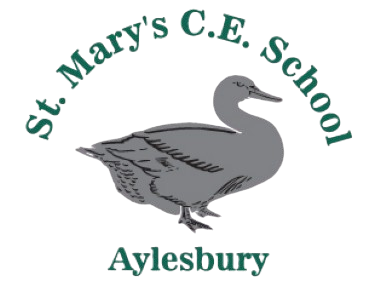History
"We use historical evidence to find out about people's lives in the past. We can learn from previous mistakes and use this knowledge to act differently next time."
- Year 6 pupil -
Intent
History is a valued part of the curriculum at St Mary’s both in terms of building an understanding of the world and the ability to think critically. We will inspire curiosity and bring the past to life, providing children of all abilities, the challenge and support they need to become young historians – ‘History Detectives.’ This includes adapting our curriculum where necessary to allow our most able and SEND pupils to thrive.
All children will develop a deeper knowledge of local history and a wider view of Britain’s past, including how Britain has both influenced and been influenced by the wider world. All children will have the opportunity to explore the rich history of ancient civilisations and their continued relevance to the modern world. We will promote a respect for historical evidence and children will evaluate and make critical use of these sources to support their learning.
Through a broad, balanced and challenging History curriculum, children will begin to understand the complexity of people’s lives, the process of change, the diversity of society and relationships between different groups, their own identity and the challenges of their time. We believe that understanding the past is vital if children are to ‘Shine as lights in the world’ in their present and future.
Implementation
In order to foster children’s curiosity about the past, interest and creativity, we are enthusiastic about History and encourage children to explore sources of information from a variety of media and ask questions.
EYFS
History is taught in reception as an integral part of the topic work covered during the year. We relate the historical aspects of the children’s work to the objectives set out in the Early Years curriculum which underpin the planning for children aged three to five. History makes a contribution to the ELG objectives of developing a child’s understanding of the world. They will find out about the past through beginning to investigate their own life story and family history, exploring how common items have changed over time and starting to recognise that there were things that existed in the world in the past that are no longer here today, such as dinosaurs.
KS1 and KS2
Skills and knowledge within History are taught in a context and with clear purpose. Our curriculum is topic based and provides a rich menu of exciting and motivating learning activities that make creative links between all aspects of our children’s learning. Blocked topic teaching is used to progress children’s knowledge and skills. The key knowledge and skills of each blocked topic and these are mapped across the school, ensuring that knowledge builds progressively and that children develop skills systematically.
In KS1, the Historical skills will focus on the world around them and their living memory of History before moving to events that go beyond living history. This will ensure a firm foundation for KS2 History. The progression of skills is set out in order to build and develop the following:
- Chronological Understanding
- Knowledge and understanding of events, people and changes in the past
- Connection and Historical Links
- Interpretations of History
- Historical Enquiry
The key historical vocabulary of each blocked topic is also mapped across the school ensuring that there is progression in vocabulary and that children understand, use and apply the vocabulary in the context of topics and concepts being studied. We use the National Curriculum to select objectives and tailor teaching and learning to meet the needs and interests of the children in their year groups. Tasks are selected and designed to provide appropriate challenge to all learners, in line with the school’s commitment to inclusion.
Where possible, the children learn through an investigative approach, asking questions, gathering and recording historical information from different sources and using various resources and technology. The local area is utilised, and we aim to provide our children with memorable experiences by incorporating educational visits to places of historical interest into our History curriculum and inviting guest speakers and visitors to school to share with us their knowledge of the past. Opportunities planned into the sequence of learning in EYFS, Key Stage 1, Lower Key Stage 2 and Upper Key Stage 2 enhance teaching and learning in History and enable children to base learning on first-hand experiences. SMSC and British Values are threaded through the History curriculum to link history to their lives and explore their heritage and cultural capital.
Impact
By the time the children leave our school, they will have developed:
- A secure knowledge and understanding of people, events and contexts from the historical periods covered.
- The ability to think critically about history and communicate confidently to a range of audiences.
- The ability to consistently support, evaluate and challenge their own and others’ views using detailed, appropriate and accurate historical evidence derived from a range of sources.
- The ability to think, reflect, debate, discuss and evaluate the past, forming and refining questions and lines of enquiry.
- A passion for history and engagement in learning, which develops their sense of curiosity about the past and their understanding of how and why people interpret the past in different ways.
- A respect for historical evidence and the ability to make critical use of it to support their explanations and judgements.
- A desire to embrace challenging activities, including undertaking high-quality research across a range of history topics
